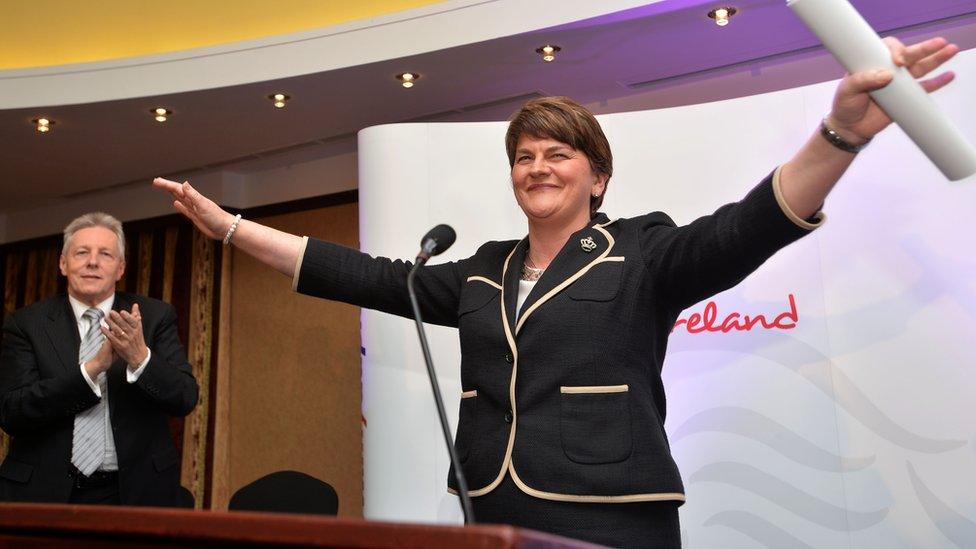Arlene Foster's elevation puts her under more scrutiny
- Published
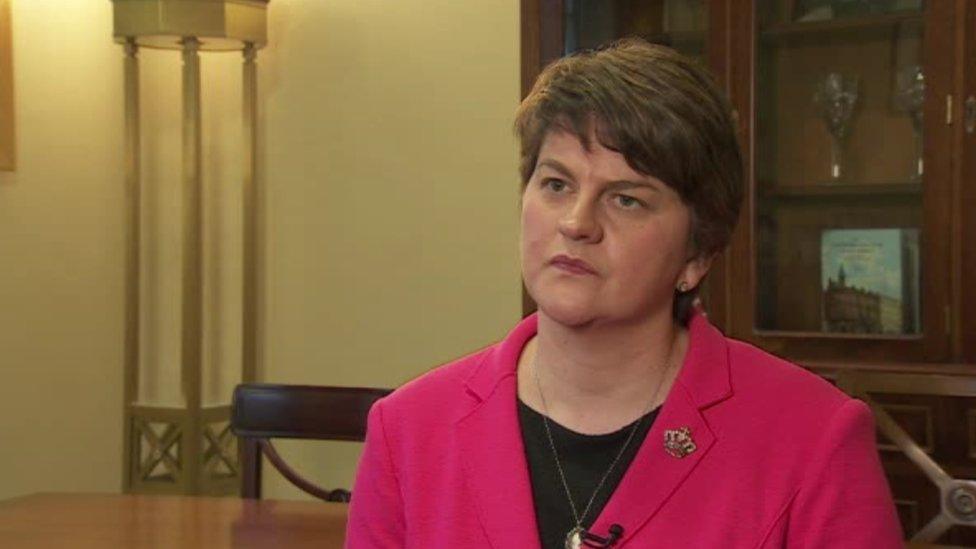
Arlene Foster has been a minister since 2007
At 45, Arlene Foster is already something of a Stormont Executive veteran.
She has been a minister since 2007, holding three portfolios - environment, enterprise and lately finance.
At Stormont, success means scrutiny - and her rise to the very top means Mrs Foster's record is being examined more closely than ever before.
Business people generally have a positive view of her performance as enterprise minister - and expect her to put the economy at the centre of her priorities as first minister.
Nigel Smyth from the CBI said: "She has listened and been responsive.
"She has also recognised the importance of innovation and having an ambitious export strategy.
"The Northern Ireland economy is still lagging the rest of the UK, but that's largely because of the constraints around public expenditure. We're on the road to recovery."
'Role models'
Mrs Foster is the longest serving woman in the executive - and is set to be the first woman to be first minister.
Lynn Carvill, chief executive of the training organisation Women's Tec, believes that this will have an impact on society.
She said: "All evidence shows that role models are crucial.
"I think having Arlene as first minister will open up opportunities and aspirations for women and girls across Northern Ireland."
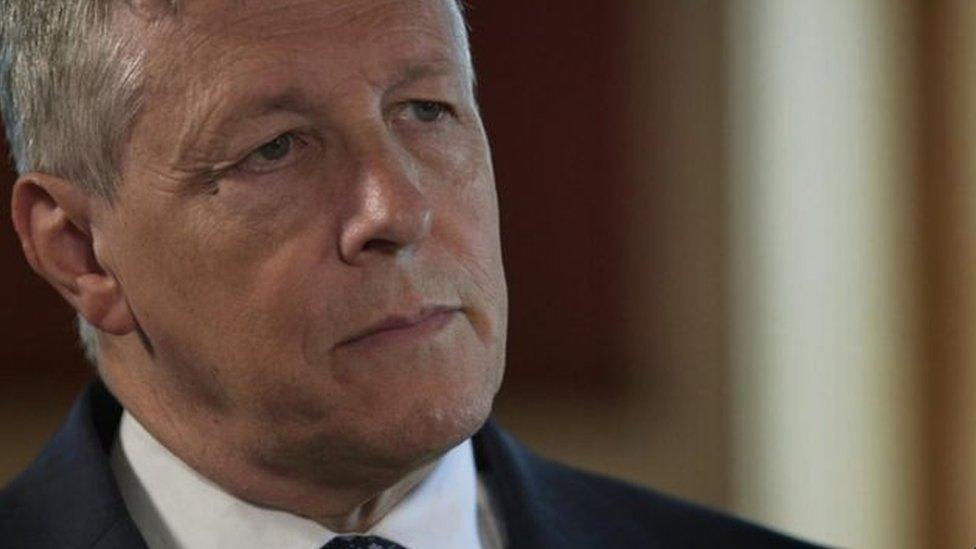
Political analyst Henry Bell thinks that Mrs Foster will continue in the same vein as Peter Robinson trying to make the DUP a 'broader church'
The Fermanagh and South Tyrone MLA's initial challenge will be to maintain the DUP's prime position in the assembly elections in May.
Political analyst Henry Bell thinks that she will continue in the same vein as Peter Robinson - trying to make the DUP "a broader church".
He believes in the long term, there may be subtle policy shifts.
"Arlene Foster, and I think to an extent Peter Robinson before her, understood that Northern Ireland is changing," he said.
"It's becoming a more liberal society - so I don't think there's a choice there."
While the electoral battle within unionism will be an early focus for Mrs Foster, her relations with nationalism may define the future welfare of power-sharing.
Noel Doran, the editor of the nationalist-leaning newspaper the Irish News, thinks cross-community co-operation is likely to stabilise further.
"The general public are cynical about what's been going on at Stormont, and it's going to take some time to turn things around," he said.
"But the opportunity is there. Arlene Foster is coming in as a younger person, as a woman, from a border area.
"I expect she'll find pragmatic ways to get on with her job."
How much Northern Ireland will change in the next few years will depend to a large extent on Arlene Foster's leadership.
Voters will give an early verdict on how she's doing - and the assembly election in May will dominate her first few months in charge of the DUP.
- Published17 December 2015
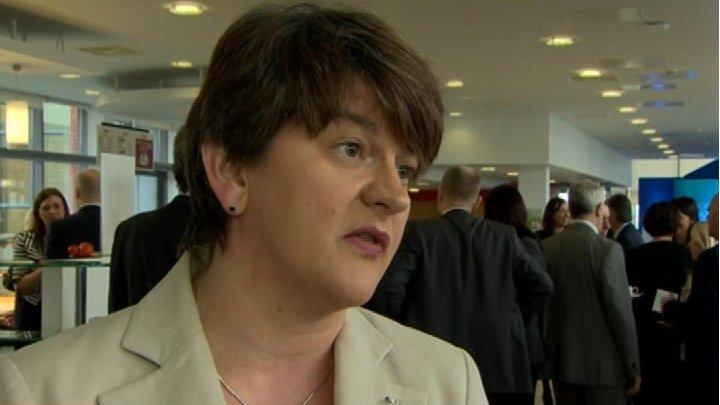
- Published17 December 2015
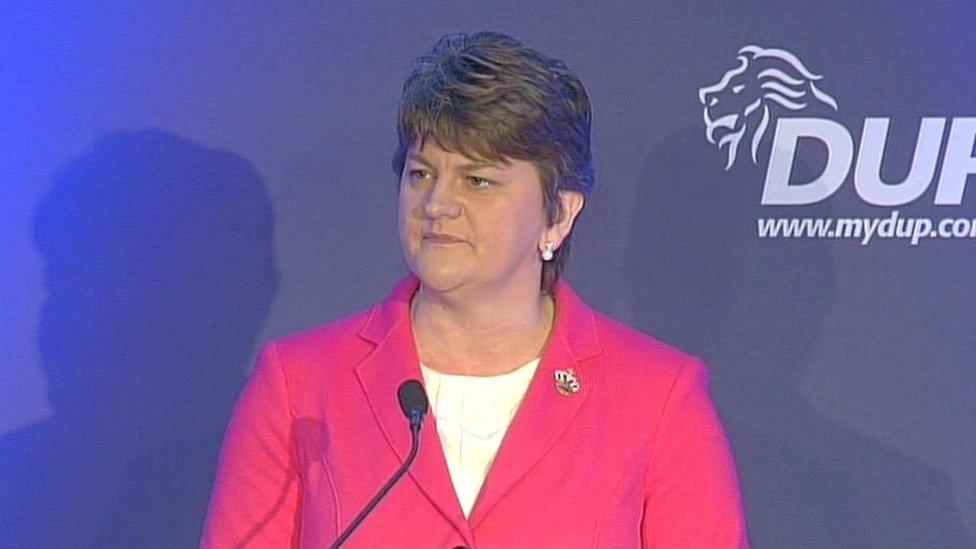
- Published13 June 2017
